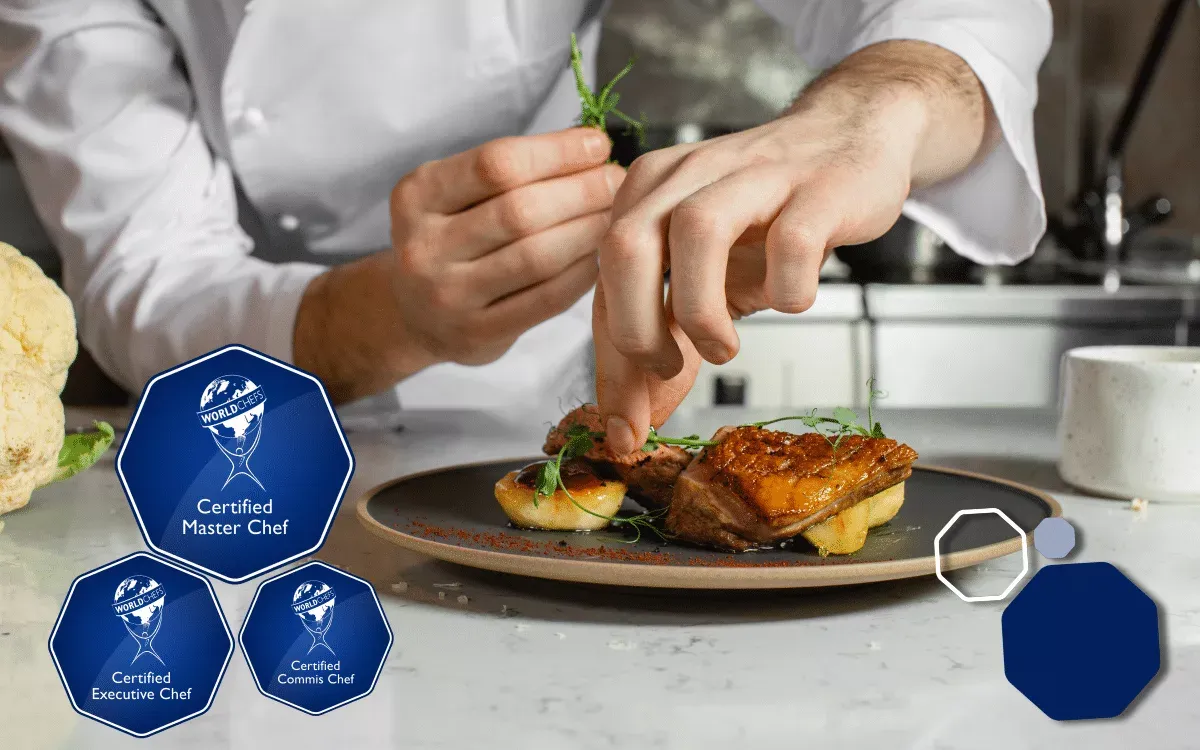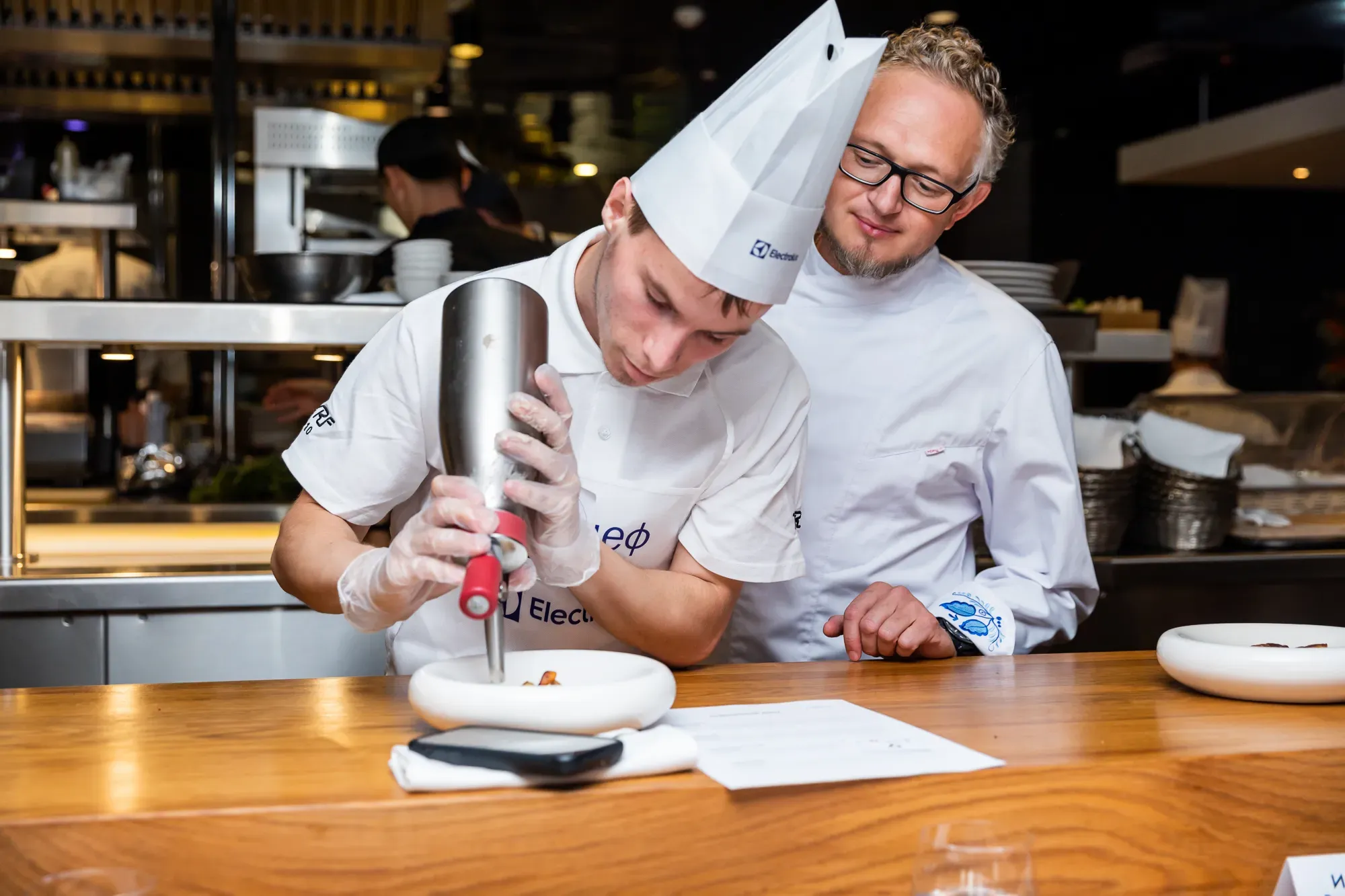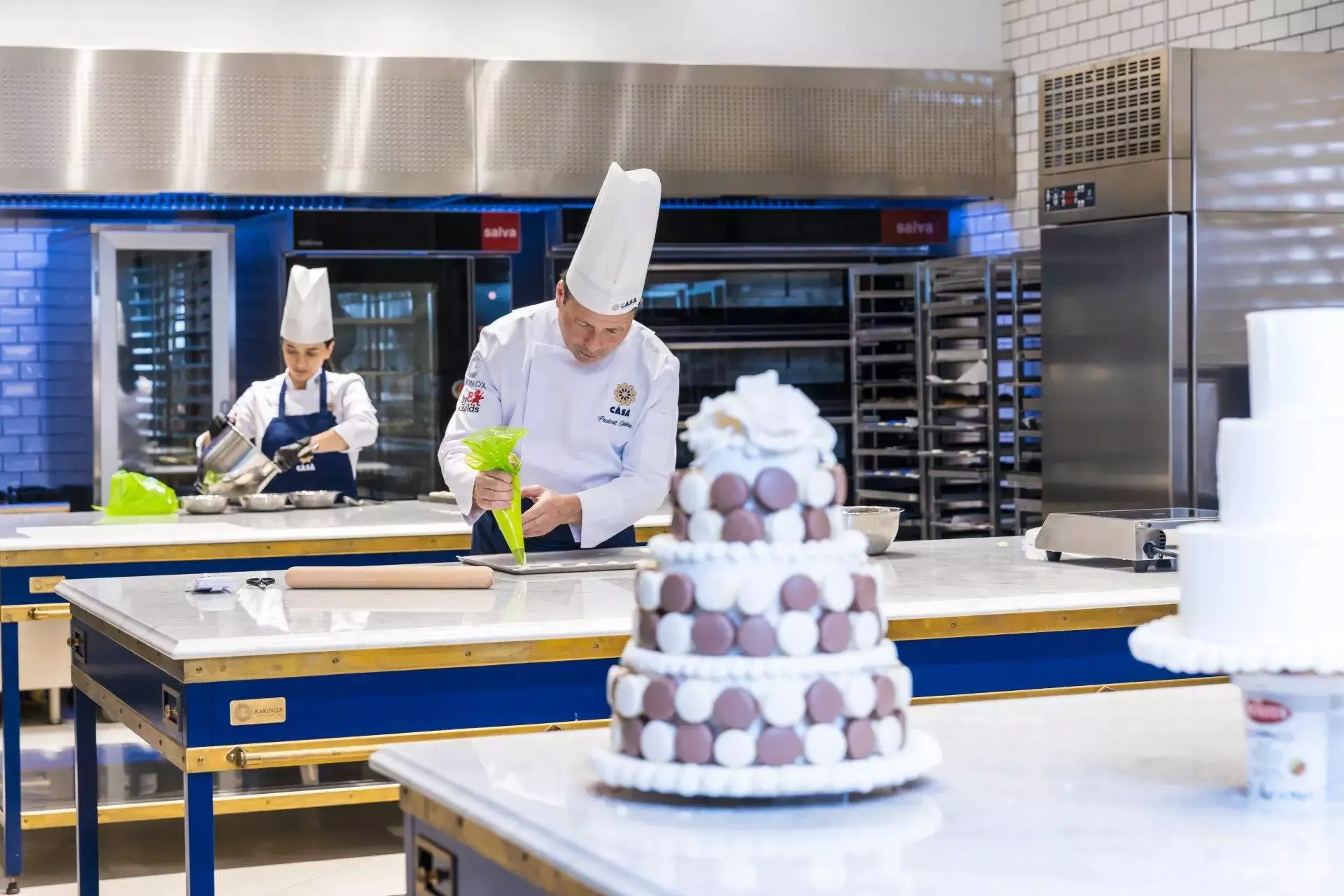LTB Philippines Chefs Association Newsletter – Vol. 3, Issue 8 – January 2026
In the latest issue (Vol. 3 Issue 8) of LTB Philippines Chefs Association Newsletter, explore...
In the latest issue (Vol. 3 Issue 8) of LTB Philippines Chefs Association Newsletter, explore...
Empowering citizens to accelerate climate action and behavioral change in EU food systems Food shapes...
SINGAPORE — The Singapore Chefs’ Association (SCA) and the Singapore Pastry Alliance (SPA) are proud...
Food Heroes is helping shape a generation that understands the power of food beyond the...
As a valued Worldchefs Education Partner, OTTIMMO International, located in Indonesia, continues to play an...
See below for recipe History of New York Cheesecake A history lesson about the product...
Get on the line with top chefs and industry experts
with conversations from around the globe.
On this episode, Ragnar speaks with Raphaël Reynard, co-founder of Chaleur, a socially engaged restaurant...
On this episode, Ragnar speaks with Morgaine Gaye, a food futurologist, trend forecaster, researcher, and...
On this episode, Ragnar speaks with Christine Tobin, a food stylist and culinary creative with...
On this episode, Ragnar speaks with Dr. Yana Steudel, a scientist, culinary innovator, and founder...
On this episode, Ragnar speaks with Andy Cuthbert, Worldchefs President and long-time leader in the...
On this episode, Ragnar speaks with Arwyn Watkins OBE, President of the Culinary Association of...
Learn from industry innovators and start your journey
towards a more conscious kitchen.
Discover how Chefs Rodrigo Duarte Casar, Marlene Rojas Le-Fort and Carolina Perez have helped expand the Sustainability Education for Culinary Professionals course...
Join Allister Esau, Food Lead at the V&A Waterfront, as we explore how AI is...
Join us for a visionary conversation with Chef Gilles Renusson — internationally renowned pastry chef,...
Join us for an inspiring conversation with Nikiforos Steiakakis — COO of the Sustainable Food...
A Live Discussion as part of the UN Ocean Conference As chefs become key players...
As sustainability becomes a core pillar of modern kitchens, chefs are seeking innovative ingredients that...
Showcase your skills and unlock your career path
with Global Culinary Certification.


Sign up today for our FREE Pre-Commis Chef Training Program or Sustainability Education for Culinary Professionals today!


Find the best culinary schools and training programs in our network to boost your career.
This October 20th, celebrate our profession by helping to teach kids about Healthy Food for the Future.
Get recognized for your passion and commitment to sustainability with the Feed The Planet Champion program.
| Cookie | Duration | Description |
|---|---|---|
| cookielawinfo-checkbox-analytics | 11 months | This cookie is set by GDPR Cookie Consent plugin. The cookie is used to store the user consent for the cookies in the category "Analytics". |
| cookielawinfo-checkbox-functional | 11 months | The cookie is set by GDPR cookie consent to record the user consent for the cookies in the category "Functional". |
| cookielawinfo-checkbox-necessary | 11 months | This cookie is set by GDPR Cookie Consent plugin. The cookies is used to store the user consent for the cookies in the category "Necessary". |
| cookielawinfo-checkbox-others | 11 months | This cookie is set by GDPR Cookie Consent plugin. The cookie is used to store the user consent for the cookies in the category "Other. |
| cookielawinfo-checkbox-performance | 11 months | This cookie is set by GDPR Cookie Consent plugin. The cookie is used to store the user consent for the cookies in the category "Performance". |
| viewed_cookie_policy | 11 months | The cookie is set by the GDPR Cookie Consent plugin and is used to store whether or not user has consented to the use of cookies. It does not store any personal data. |